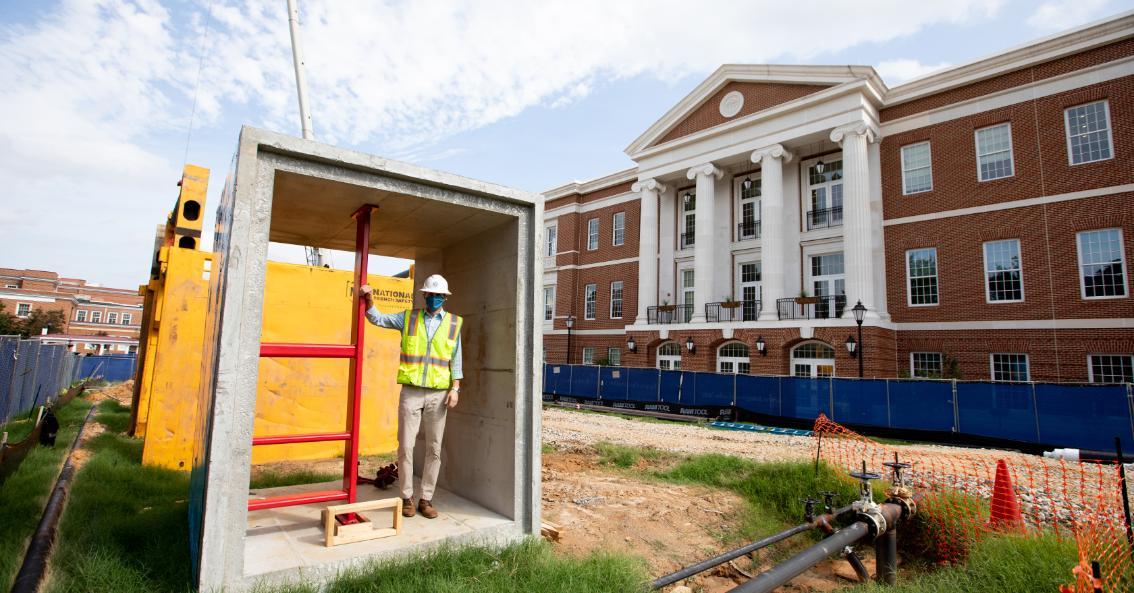Snaking across Longwood’s campus is an underground network of tunnels that links every building—many of the tunnels large enough for a person to walk through.
But rather than a secret known only to CHI or a way for professors to get to class without getting caught in a rainstorm, these tunnels deliver an essential element that keeps Longwood functioning: steam.
Our biomass heating plant is the envy of a lot of colleges and universities, in terms of environmental impact, sustainability and cost.
Louise Waller, vice president for finance and administration Tweet This
Longwood’s unique and state-of-the-art heating plant, built in 2012, doesn’t use oil or gas like other public universities in Virginia. Instead, it burns sawdust and wood chips to produce the massive amounts of steam that travel to each building, providing hot water year round and heat in the winter. Not only is this fuel source locally sustainable and much more cost-effective than gas or oil, it’s much more environmentally friendly.
As the tunnels that move the steam around age, some date back to the middle of last century—they are in need of replacement to increase efficiency and capacity.
“Our biomass heating plant is the envy of a lot of colleges and universities, in terms of environmental impact, sustainability and cost,” said Louise Waller, vice president for finance and administration. “We’re fortunate to have this facility, and the construction that’s currently underway on Wheeler Mall is going to make it even more efficient going forward. It’s really amazing to think about everything that’s happening just under our feet as we’re walking around campus.”
The state-funded Wheeler Mall steam distribution replacement project began in earnest in April, after communication lines were relocated in late 2019. Construction crews dug the massive trench needed for the new tunnel system throughout the summer. This fall, students returned to the sight of cranes hoisting pre-cast 6-by-8-foot concrete tunnel sections into the air and then lowering them into the trench. Once in the ground, insulated steam pipes are set on steel racks inside the tunnel.
“When we’re finished, the new tunnel will run about 500 feet from Hiner Hall to Stevens Hall, and provide new steam service to Wheeler, Stevens and Hiner halls,” said Jared Tackett, project manager. “We’re making good progress with the first section, and the entire tunnel project should be complete in the spring semester.”
The eastern end of the project—nearest to the rear of the Rotunda—will be completed around October, allowing for the blue construction fencing to be moved and Brock Commons to be fully opened from the High Street Gateway to the new Joan of Arc statue.
“When we can get Brock Commons back fully open, that will alleviate some of the movement issues that students, faculty and staff are experiencing at the beginning of the semester,” said Waller. “I know it’s a slight inconvenience, but when it’s finished we will be in a much better place, infrastructure-wise.”
Unique among public universities in Virginia, Longwood operates a biomass processing plant located just outside Farmville on Route 360. Working with local timber companies and sawmills, the plant processes and delivers the 20-40 tons of sawdust the campus requires each day—up to 34,000 tons per year. The sawdust is stored on campus in two 48-foot-tall silos that feed the boilers.



Leave a Comment